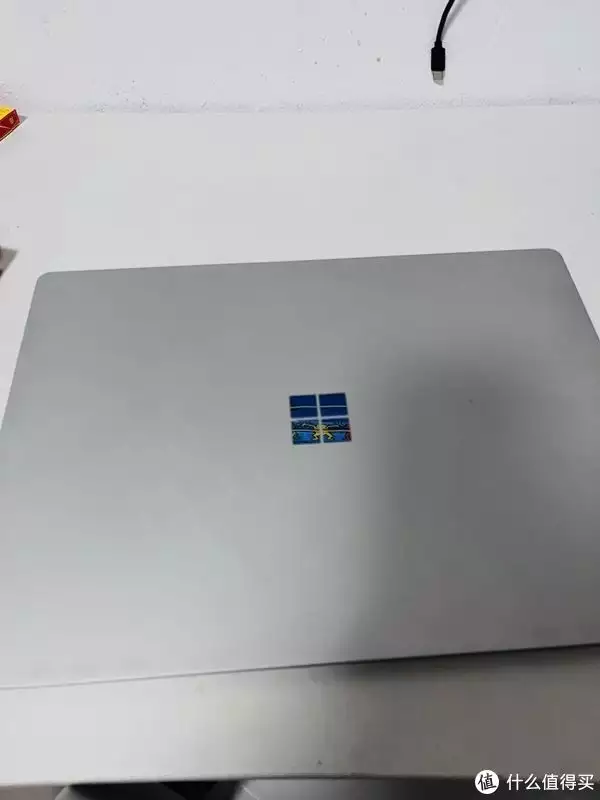(点击喇叭播放或暂停听力)textbook /tekstbuk/ n. 教科书;课本 p.1conversation /kɔnvəseɪʃn/, n. 交谈;谈话 p.2
aloud /əlaud/ adv. 大声地;出声地 p.2pronunciation /prənʌnsieIʃn/ n. 发音;读音 p.2sentence /sentəns/ n. 句子 p.2patient /peiʃnt/ adj. 有耐心的 n. 病人p.2
expression /ikspreʃn/ n. 表达(方式);表示 p.3discover /dIskʌvə (r)/ v. 发现;发觉 p.3secret /si:krət/ n. 秘密;adj. 秘密的;p.3
fall in love with 爱上;与⋯⋯相爱 p.3grammar /græmə (r)/ n. 语法 p.3repeat /ripi:t/ v. 重复;重做 p.4note /nəut/ n. 笔记;记录 v. 注意;指出p.4
pal /pæl/ n. 朋友;伙伴p.4pattern /pætn/, /pætən/ n. 模式;方式p.4physics /fiziks/ n. 物理;物理学 p.4chemistry /kemistri/ n. 化学 p.4
partner /pa:(r)tnə (r)/ n. 搭档;同伴 p.5pronounce /prənauns/ v. 发音 p.5increase /Inkri:s/ v. 增加;增长 p.5speed /spi:d/ n. 速度 v.加速 p.5
ability /əbiləti/ n. 能力;才能 p.6brain /brein/ n. 大脑 p.6active /æktiv/ adj. 活跃的;积极的 p.6attention /ətenʃn/ n. 注意;关注 p.6
pay attention to 注意;关注 p.6connect /kənekt/ v. (使)连接;与⋯⋯有联系 p.6connect … with 把⋯⋯和⋯⋯连接或联系起来 p.6overnight /əuvə (r)nait/adv. 一夜之间;在夜间 p.6
review /rivju:/ v. & n. 回顾;复习 p.6knowledge /nɔlidʒ/, n. 知识;学问p.6wisely /waizli/ adv. 明智地;聪明地 p.6Annie /æni/ 安妮(女名)p.2
Alexander Graham Bell 格雷厄姆 • 贝尔 p.6学习目标:1. Talk about how to study. 学会讨论各种学习方法和策略2. Find out your suitable learning methods. 找出适合自己的学习方法。
3.熟练掌握下列词汇:aloud pronunciation discover repeat notepronounce increase speed partner create active connect review knowledge wisely born attention
3.熟练掌握下列短语:work with friends ask the teacher for help read aloud look up practice pronunciation connect…with… pay attention to
4.掌握下列句型:How do you study English? I learn by working with a group.Do you learn English by reading aloud?
Yes, I do. It helps my pronunciation.How can I read faster? You can read faster by reading word groups.
How can I improve my pronunciation?One way is by listening to tapes.But whether or not you can do this well depends on your learning habits.
人教九上Unit1 Section A 听力 (点击喇叭播放或暂停听力)
Section A 1b Listen. How do these students study for a test? Write letters from 1a above.Boy: Hey, everybody. There’s a big test on Tuesday.
I really need some help. Can you tell me how you study for a big test?Voices: Sure! Yes. Sure we will.
Boy: You did really well on the last English test, didn’t you, Meiping?Meiping: Yeah, I did OK.Boy: Well, how did you study for it?
Meiping: By making word cards.Boy: Maybe I’ll try that. So, how do you study for a test, Peter?Peter: By asking the teacher for help. She’s always happy to answer my questions.
Boy: That’s interesting. How do you study, Tony?Tony: I like to study by listening to tapes. But sometimes my mother thinks I’m listening to music. And then she gets mad.
Boy: Oh, maybe I won’t do that then.听录音这些学生是怎样为考试而学习的?写出上面1a中的字母男孩:嗨,同学们星期二有一次大型考试我非常需要一些帮助你们能告诉我你们是如何为大型考试而学习的吗?。
(同学们的)声音:当然!是的,我们肯定会男孩:梅平,你在上次的英语考试中做得很好,是不是?梅平:是啊,我做得还可以男孩:那么你是如何备考的?梅平:通过制作单词卡男孩:也许我会尝试一下那么你如何备考,彼得?。
彼得:通过向老师求助。她总是很高兴地回答我的问题。男孩:那很有趣。你如何备考,托尼?托尼:我喜欢通过听录音带学习。但有时我妈妈认为我在听音乐。然后她会生气。男孩:哦,那我可能不会那样做。
2a Listen and check (√) the questions you hear.Man: Welcome to the English club. Today we’re going to talk about the best ways to learn English. Does anyone learn English by watching videos?
Girl 1: No. It’s too hard to understand spoken English.Boy 1: What about keeping a diary in English? Do you learn English that way?
Girl 1: Yes, I do. It helps to write English every day.Boy 2: Have you ever studied with a group?Girl 2: Yes, I have! I’ve learned a lot that way.
Boy 2: Do you have conversations with friends in English?Girl 2: Oh, yes. It really improves my speaking skills.
Girl 1: What about reading aloud to practice pronunciation?Boy 1: I do that sometimes. I think it helps.
Girl 2: I do, too. And I often look up new words in a dictionary.Boy 2: That’s a great idea!听录音,标出(√)你所听到的问题。
男士:欢迎来到英语俱乐部今天我们要谈谈学习英语的最好的方法有人通过看录像学习英语吗?女孩1:没有听懂英语口语太难了男孩1:写英文日记怎么样?你用那种方法学英语吗?女孩1:是的它有助于我每天写英语男孩2:你曾参加过小组学习吗?
女孩2:是的,参加过!我用那种方法学到了很多(知识)男孩2:你和朋友一起用英语谈话吗?女孩2:哦,是的它确实提高了我的口语技能女孩1:大声读来练习发音怎么样?男孩1:我有时那样做我认为那样会有所帮助女孩2:我也那样做。
而且我经常在词典中查阅新单词男孩2:那是个好主意!2d Role-play the conversation.Jack: Annie, I’m a little nervous. I have to finish reading a book and give a report next Monday.
Annie: That doesn’t sound too bad.Jack: But I’m a very slow reader.Annie: Just read quickly to get the main ideas at first. Don’t read word by word, read word groups.
Jack: But I don’t understand many of the words. I have to use a dictionary.Annie: Try to guess a word’s meaning by reading the sentences before and after it. You probably understand more than you think.
Jack: That sounds difficult!Annie: Well, be patient. It takes time. You can become better by reading something you enjoy everyday. The more you read, the faster you’ll be.
Jack: 安妮,我有点紧张,我必须读完一本书,以便下周一作报告Annie: 听起来不太糟糕Jack: 但我是一个读书很慢的人Annie: 一开始只管快速阅读获取文章大意就好了,不要逐字逐句的读,按词组阅读。
Jack: 但我很多单词都不懂,我不得不用字典Annie: 尽量通过阅读上下文来猜测单词的意思,可能你知道的比你预象的要多Jack: 那听起来很难!Annie: 哦,耐心点,这得花时间你可以每天通过阅读你喜欢的东西得到提高。
你读得越多,你的阅读速度就越快
Section A 3a Read the passage about Wei Fen and answer the questions.How I Learned to Learn EnglishLast year, I did not like my English class. Every class was like a bad dream. The teacher spoke too quickly that I did not understand her most of the time. I was afraid to ask questions because of my poor pronunciation. I just hid behind my textbook and never said anything.
Then one day I watched an English movie called Toy Story. I fell in love with this exciting and funny movie! So I began to watch other English movies too. Although I could not understand everything the characters said, their body language and the expressions on their faces helped me to get the meaning. I also realized I could get the meaning by listening for just the key words. My pronunciation improved as well by listening to the conversations in English movies. I discovered that listening to something interesting is the secret to language learning. I also learned useful sentences like “It’s a piece of cake” or “It serves you right”. I did not understand these sentences at first. But because I wanted to understand the story, I looked them up in a dictionary.
Now I really enjoy my English class. I want to learn new words and more grammar so that I can have a better understanding of English movies.
我是如何学会学习英语的去年,我不喜欢我的英语课每节课像是一个噩梦老师说的太快以至于我大多数时候都听不太懂因为我糟糕的发音,我害怕问问题我只是躲在我的课本后面,从来不说一句话后来有一天我看了一部叫做《玩具总动员》的英语电影。
我爱上了这部既激动人心又滑稽有趣的电影!就这样我也开始看其他的英文电影虽然我无法听懂那些角色所说的全部内容,但他们的肢体语言和面部表情帮助我理解了意思我也意识到我可以通过只听关键词来理解意思通过听英文电影中的对话,我的发音也。
变得更好了我发现听一些有趣的内容是学习语言的秘诀我还学到了一些有用的句子比如“这简直是小菜一碟”或者“你活该”我起初不理解这些句子,但是因为我想理解这个故事,所以我查了字典现在我真的喜欢我的英语课我想学习生词和更多的语法,那样我对英语电影就能有更好的理解了。
by作介词时,可表示方式或手段,意为“通过……方式或方法;借助……手段”,后接动词时,要用动词-ing形式,“by+动词-ing形式”可在句中作状语对作状语的“by+动词-ing形式”提问时,要用how。
。如:That man achieved his dream by working hard. (对划线部分提问)How did that man achieve his dream?
人教九上Unit 1 Section B听力 (点击喇叭播放或暂停听力)
1c Paul finds it difficult to learn English. Listen and complete the learning challenges he talks about.
Ms. Manson: You look worried, Paul.Paul: I am, Ms. Manson. I’m having trouble learning English.Ms. Manson: You said you liked English. What’s the problem?
Paul: I can’t get the pronunciation right.Ms. Manson: Well, listening can help. Why don’t you listen to English songs on the radio and repeat the difficult words?
Paul: That’s a good idea. But what about all the new words? I forget a lot of the new words.Ms. Manson: You can always write the new words in your notebook and review them from time to time. You can even study on the subway on the way to school.
Paul: That might really help! Thanks.Ms. Manson: Can you understand when people talk to you?Paul: Well, not always. Sometimes I just don’t understand what people are saying.
Ms. Manson: Why don’t you join an English language club to practice speaking English? The English club meets after school on Tuesdays and Thursdays.
Paul: Maybe I’ll go. The only other problem is that I don’t get much writing practice.Ms. Manson: Maybe you should find a pen pal.
Paul: That sounds like a fun way to practice writing. Thanks, Ms. Manson.保罗发现学英语很难听录音,完成他所谈到的学习方面的挑战曼森女士:你看起来很忧虑,保罗。
保罗:是的,曼森女士我学英语有困难曼森女士:你说过你喜欢英语有什么困难?保罗:我不能准确发音曼森女士:哦,听会有帮助你为什么不通过收音机听英文歌曲,并且重复那些很难的单词呢?保罗:那是个好主意但是所有的新单词呢?我忘记很多生词。
曼森女士:你可以一直把新单词写在笔记本上,不时地复习它们你甚至可以在上学的路上坐地铁时学习保罗:那也许确实有所帮助!谢谢曼森女士:当人们和你说话时,你能听懂吗?保罗:哦,并不总是(能听懂)有时,我就是不明白人们在说什么。
曼森女士:你为什么不加入一个英语语言俱乐部来练习说英语呢?英语俱乐部在星期二和星期四放学后开放保罗:也许我会去仅有的另外一个问题是我没有得到大量的写作练习曼森女士:也许你应该找个笔友保罗:那听起来像是练习写作的一个有趣的方法。
谢谢你,曼森女士。
2b Read the passage quickly.How Can You Become a Successful Learner?Everyone is born with the ability to learn. But whether or not you can do this well depends on your learning habits. Research shows that successful learners have some good habits in common.
Creating an interest in what they learnStudies show that if you are interested in something, your brain is more active and it is also easier for you to pay attention to it for a long time. Good learners often connect what they need to learn with something they are interested in. For example, if they need to learn English and they like music or sports, they can listen to English songs or watch sports programs in English. This way they will not get bored.
Practicing and learning from mistakesGood learners think about what they are good at and what they need to practice more. Remember, “use it or lose it”! Even if you learn something well, you will forget it unless you use it. Practice makes perfect. Good learners are also not afraid of making mistakes. Alexander Graham Bell did not invent the telephone overnight. He succeeded by trying many times and learning from his mistakes.
Developing their study skillsIt is not enough to just study hard. You have to know how to study. Good learners find out the best ways to learn well. For example, they may take notes by writing down key words or by drawing mind maps. Good learners also look for ways to review what they have learned. They may do this by reading their notes every day or by explaining the information to another student.
Asking questionsGood learners often ask questions during or after class. They even ask each other and try to find out the answers. Knowledge comes from questioning. Learning is a life-long journey because every day brings something new. Everything that you learn becomes a part of you and changes you, so learn wisely and learn well.
你如何才能成为一个成功的学习者 每个人天生都具有学习的能力,但能否学习得好在乎你的学习习惯,研究显示成功的学习者都有共通点,就是有良好的学习习惯激发他们对所学内容的兴趣 研究表明,如果你对学习的东西感兴趣,你的大脑会更加活跃,也更容易令你的专注力更能持久。
好的学习者往往会把需要学习的东西联系到感兴趣的事物例如:如果他们要学习英语,而他们喜欢音乐或运动,他们可以听英语歌曲或观看英语体育节目这样,他们就不会觉得沉闷实践和从错误中学习 好的学习者会考虑什么是他们擅长的,和什么需要多些练习.请记住,“用进废退!”即使有些东西你学得很好,除非你学以致用,否则就会忘记,所谓「熟能生巧」。
好的学习者也不怕犯错误.亚历山大·格雷厄姆·贝尔( Alexander Graham Bell)也不只是一天就发明了电话他的成功是经过很多次的尝试及从错误中学习发展他们的学习技巧 光是努力学习是不够的,你必须懂得如何学习。
好的学习者会找出最佳的学习方法.例如,他们可能会写下关键字记或绘制「思维导图」来做笔.好的学习者也会设法复习所学的,他们或会每天都阅读自己的笔记或向另一位同学解释所学来的提问 好的学习者常常在课堂中或下课后提问题.他们还问互相提问来找出答案.「学源于思,思源于疑」,学习是一辈子的事,因为每天都有新的事物,你所学的一切将成为你的一部分,并且改变你,所以学习要学得其法、学得好。
短语识记Section Amake word cards 制作词卡read the textbook 阅读课本listen to tapes 听磁带ask the teacher for help 求助老师
study for a test 备考work with a group 小组合作have conversations with friends 和朋友们谈话read aloud 朗读improve speaking skills
提高口语技能give a report 作报告a slow reader 一个阅读速度慢的人get the main ideas 获取大意at first 起初;开始read word by word
逐字读word groups 意群be patient 耐心点儿It takes time. 这得花时间/这得慢慢来be afraid to do / of doing sth. 害怕做某事poor pronunciation 。
发音不好fall in love with ... 爱上……body language 手势语;肢体语言the expression(s) on ones face 某人脸上的表情listen for the key words
留神听关键词as well 也the secret to ... ……的秘诀language learning 语言学习Its a piece of cake. 小菜一碟It serves you right. 。
你活该look up the word in a dictionary 在字典中查单词take notes 记笔记memorize sentence patterns 记忆句型do grammar exercises 。
做语法练习keep a diary in English 用英语记日记短语识记Section Bincrease reading speed 提高阅读速度make mistakes in grammar
在语法方面犯错join an English club 加入英语俱乐部be born with ... 天生具有……the ability to learn 学习的能力depend on 取决于;依赖learning habits
学习习惯have ... in common 有……共同之处create an interest in ... 对……产生兴趣pay attention to注意;关注connect ... with ...
把……和……连接或联系起来learn from mistakes 从错误中学习think about 考虑Use it or lose it. 非用即失Practice makes perfect. 熟能生巧。
develop study skills 培养学习技能write down 写下;记下draw mind maps 画思维导图look for ways to review 寻找复习的方法during or after class
在课上或课下Knowledge comes from questioning. 知识源于质疑a lifelong journey 一生之旅be stressed out 紧张的;有压力的on ones own 。
独自bit by bit 一点一点地over and over again 多次;反复地have a listening test 听力测试
人教九上Unit 1 课文参考答案Section A1b 1.b 2.e 3.d2a 1,2,4,52b 1.d 2.b 4.c 5.a3a 1. The teacher spoke too quickly and Wei Fen did not understand her most of the time,but she was afraid to ask questions because of her poor pronunciation.
2.She hid behind her textbook and never said anything. 3.For Wei Fen,thesecret to language learning is listening to some thing interesting.
3b 1.body language,expressions 2.key words 3.conversations 4.useful 5.dictionary4a 1.c 2.e 3.f 4.a 5.b 6.d
Section B1c 1.pronunciation 2.forgets 3.understand 4.writing1d 1.Listening 2.write the new words 3.join an English language club 4.pen pal
2c 1.The writer doesn’t think that everyone is born with the ability to learn well.2.This is because studies show that if you are interested in something,your brain is more active and it is easier for you to pay attention to it fof a long time,You will also not get bored.3.Use it or lost it:If you stop doing something,you will forget how to do it.Practice makes perfect:If you do something again and again,you will become very good at it. 4.They learn from mistakes,and they are not afraid of making mistakes. 5.Take notes by writing down key words or by drawing mind maps. Look for ways to review what has been learnt,e g,read the notes every day or explain the information to another student.
Self Check1develop,take notes,practice,remember,until,everything,prepare,worry about22,6,4,1,5,7,3
END(本资料根据网络教材配套素材整理,不得用作商业目的!)
亲爱的读者们,感谢您花时间阅读本文。如果您对本文有任何疑问或建议,请随时联系我。我非常乐意与您交流。







发表评论:
◎欢迎参与讨论,请在这里发表您的看法、交流您的观点。